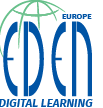
- This event has passed.

EDEN 2024 Annual Conference in Graz (Austria)
June 16, 2024 @ 08:00 – June 18, 2024 @ 17:00
Conference Theme
EDEN 2024 Annual Conference will be held at University of Graz, Austria, 16-18 June. The conference theme is “Learning in the Age of AI: Towards Imaginative Futures”.
Registration is now open, register to EDEN 2024 Annual Conference, here.
Paper Submission Closed
Find more information about EDEN DLE 2024 Annual Conference below:
“Learning in the Age of AI: Towards Imaginative Futures”
At EDEN 2024, we invite you to join us in a thoughtful exploration of the rapidly evolving landscape of education, as we adapt to the ever-increasing presence of AI and digital systems. Our experiences in the journey with AI are still young and can be described as stories of trial and error, so sharing our experiences, expectations and hopes is vital. The digital revolution has ushered in exciting, promising, and imaginative changes, but it is also testing our beliefs about learning and education.
At EDEN 2024, we propose the following thematic fields:
How do we promote fairness in digital learning futures? In the age of AI, it has become evident that technology is not impartial. We must delve deep into the ethical implications of AI in education to ensure that the digital systems we implement are fair and just. How can we safeguard human decisions against AI systems that perpetuate existing inequalities or inadvertently create new disparities? How can we explore and refine strategies and practices to promote fairness and equity in AI-enhanced learning environments.
What is required to help foster nestedness and integration in the complex digital learning ecosystem? Our educational institutions are richly diverse, historically grounded, and technologically distinct. As we embrace AI in education, we must address the intricacies of “rewilding” our educational landscapes with cutting-edge digital learning and teaching approaches. At the same time, we need to foster meaningful connectivity and collaboration among institutions that may operate uniquely. (How) can we adapt AI solutions to accommodate the nuanced differences and interdependencies and ensure interoperability of our educational systems, all while working toward common goals?
What does learner-centered pedagogy look like in reimagining the digital classroom of the future? In an era where AI is transforming the educational landscape, the notion of learner-centric care takes on new dimensions. Artificial Intelligence may offer unprecedented opportunities to support individual learners. However, how can we ensure this support does not take away learner agency and be counterproductive to authentic learning experiences? Can AI-driven personalization still foster collaboration, engagement, and promote meaningful learning experiences? Join us to delve into AI’s potential and challenges and talk about our care for each learner and their individual educational journeys. Let’s explore the yet-uncharted territory of AI-driven learner-centric care in the digital age.
What digital transformations are needed for learning and teaching in the future? Keeping pace with evolving educational needs and technological advancements means designing best practices for blended, hybrid and online learning, transforming assessment in the encounter of AI practices as well as realizing the potential of open educational practices. These are just some of the challenges and potential transformations ahead as well as policy, strategy and leadership needed for the next normal.
In the spirit of the EDEN community, we welcome all contributions that connect to the proposed themes and relevant topics to do with digital learning.
Monday 17th June 2024 – Keynote Speakers

Lidija Kralj
Expert for AI and Data, Member of the EC, UNESCO working groups, Croatia
Keynote Title:
“Treasure Hunt in AI Land”
Monday 17th June – Spotlight Speakers
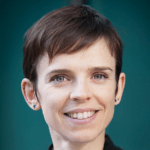
Francesca Maltauro
Deputy Head of Unit Digital Education at the Directorate General for Education and Culture,
European Commission

Juliane Jarke
Professor of Digital Societies at the University of Graz, Austria
Keynote Title:
“Does AI Dream of Risk-Free Education? The Politics and Pitfalls of Risk Mitigation in Learning Analytics”

Denise Whitelock
EDEN DLE Vice-President for Research. Director for the Institute of Educational Technology, The Open University, UK

Martin Ebner
Head of the Department Educational Technology at Graz University of Technology, Austria
Keynote Title:
“Why Do We Still Need MOOCs For Education?”
Tuesday 18th June 2024 – Keynote Speakers

Sabina Sägi
Head of Research Cooperation,
EdTech Estonia
Keynote Title:
“Why Does the Tiger Leap? Towards Digital (Higher) Education
Tuesday 18th June 2024 – Spotlight Speakers

Ron Owston
Research Associate specializing in AI in Higher Education, Contact North | Contact Nord, Canada
Keynote Title:
“Personalized AI Tutoring as a Social Activity: Paradox or Possibility?”
Learn More About Our Keynotes and Spotlight Speakers

Lidija Kralj is education analyst, expert in AI and data, member of European Commission’s
working groups on Artificial intelligence and data in education and training, digital education
and safer internet; UNESCO and Council of Europe workgroups on AI and education, author of digital learning resources and textbooks, eLearning and project manager, mathematicsand computer science teacher as well as an advisor and teacher trainer with 30 years of experience. She had been working at Croatian Ministry of Education, leading education system reforms.

Francesca Maltauro is Deputy Head of Unit Digital Education at the Directorate General for Education and Culture of the European Commission. Through its strategic and comprehensive approach to digital education and training, the Unit contributes to delivering on the European Commission’s ambition of “A Europe fit for a digital age”. Francesca joined the Commission in 2016, leading the Erasmus+ team in the Higher Education Unit. Before joining the European Commission, she worked for the European University Association, as a policy officer in the fields of institutional development and doctoral education. Before that, she has worked for 7 years at the International Relations Office of the University of Bologna, and at the Brussels School of International Studies of the University of Kent. Francesca Maltauro holds a Master’s degree in Interpreting and Translation from the University of Bologna.
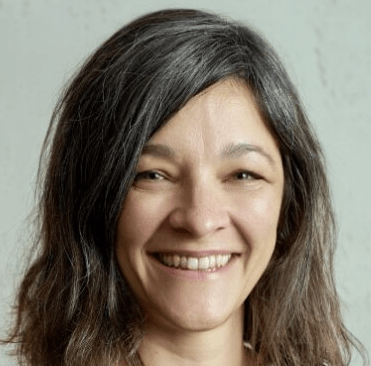
Juliane Jarke is Professor of Digital Societies at the University of Graz. Her research attends to the increasing importance of digital data and algorithmic systems in the public sector, education and for ageing populations. She received her PhD in Organisation, Work and Technology from Lancaster University and has a background in computer science, philosophy and STS. Amongst others, she has co-edited the volumes “The datafication of education” (2019, Routledge) and “Die datafizierte Schule” (2023, Springer) as well as the Special Issue “Designing Postdigital Futures” in Postdigital Science and Education (2024). More information on: www.sociodigitalfutures.info
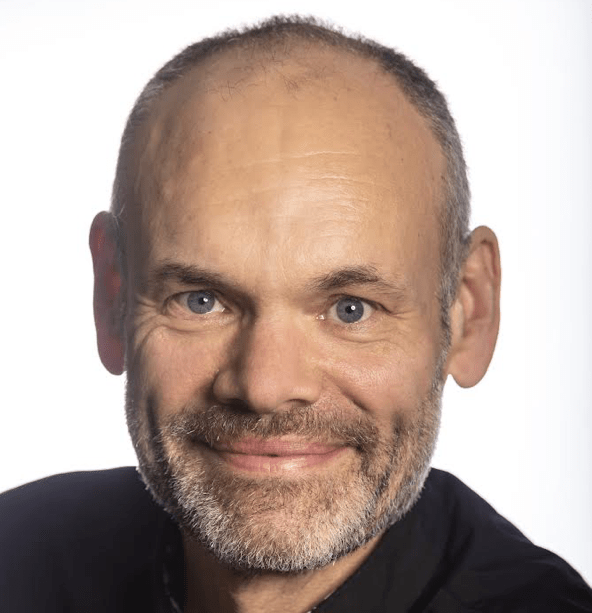
Martin Ebner is currently head of the Department Educational Technology at Graz University of Technology and therefore responsible for all university wide e-learning activities. He holds an Adjunct Prof. on media informatics (research area: educational technology) and works also at the Institute for Interactive Systems and Data Science as senior researcher at Graz University of Technology. His research focuses strongly on MOOCs & microcredentials, AI in education, open educational resources and computer science for children. Martin has given a number of lectures in this area as well as workshops and keynotes at international conferences. For publications as well as further research activities, please visit his website: http://martinebner.at
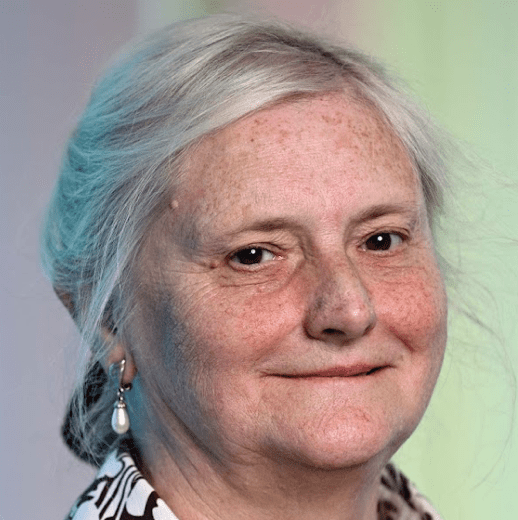
Denise Whitelock is EDEN DLE Vice-President for Research and the Director for the Institute of Educational Technology at The Open University. She is a Professor of Technology Enhanced Learning and has over twenty-five years’ experience in Artificial Intelligence for designing, researching and evaluating online and computer-based learning in Higher Education. She recently led the UK’s contribution to the Adaptive Trust e-Assessment System for Learning (TeSLA). She is currently the Editor of Open Learning: The Journal of Open, Distance & e-Learning. Her work has received international recognition through holding visiting Chairs at the Autonoma University, Barcelona and the British University in Dubai. Denise is currently a serving Board Member and Vice President Research for EDEN Digital Learning Europe. For complete publication list see: http://oro.open.ac.uk/view/person/dmw8.html
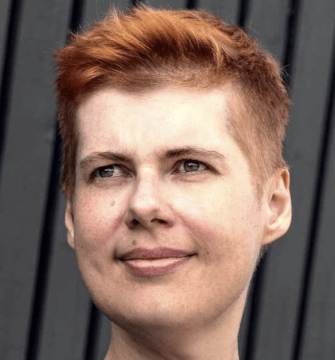
Sabina Sägi holds a degree in Slavonic Studies and Film (with a focus on TV directing) from the University of Glasgow. She has also completed graduate work in Prague, Ludwigsburg and Jerusalem. Having lived in 8 countries in 10 years, Sabina has taught in a vocational school in Bulgaria, headed a film museum in Germany and taught animation in Serbia. She was in charge of Estonia’s implementation of the European Commission’s Erasmus+ KA2 cooperation partnerships in higher ed. Later, she joined international fintech Wise. Her day-to-day work includes wrangling 50+ edtech startups and their relevant partners regarding research cooperation and business development. Sabina has moderated panels in Austria, Switzerland, UK, Lithuania on topics as varied as edtech in Africa, female startup founders and AI & freedom. In addition to her native Estonian, she speaks fluent German and English.
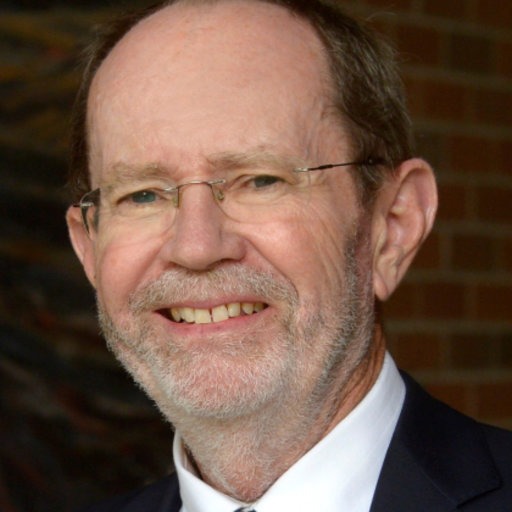
Dr. Ron Owston, a Research Associate specializing in AI in Higher Education at Contact North | Contact Nord in Ontario, Canada, leads the development of an innovative suite of AI-powered applications. These tools, available for free to the community, include AI Tutor Pro and AI Teaching Assistant Pro. AI Tutor Pro offers personalized tutoring for learners at any level on any subject, while AI Teaching Assistant Pro supports course development, teaching, and assessment. A pioneer in educational technology research, Dr. Owston is also University Professor Emeritus at York University, former Dean of Education, and founding Director of the Institute for Research on Learning Technologies.
Call For Papers
Submit your contribution for EDEN 2024 Annual Conference will be held at University of Graz, Austria, 16-18 June. The conference theme is “Learning in the Age of AI: Towards Imaginative Futures”. Submission will be open until April 5 2024. Find more information about Submission Types and Guidelines below:
Submission Types and Guidelines
Authors are invited to submit high-quality manuscripts reporting original unpublished research and recent developments. Submissions should align to the conference theme and in the topics related to the scope of the conference (see below). All paper types will be double blind peer reviewed by members of the Scientific Committee. Find all the submission types and guidelines below.
General Presentation Guidelines
There is no standard presentation template at EDEN 2024 Annual Conference. This means you are free to use your own template, but we recommend that you do so using a 16:9 ratio in PowerPoint (or PDF), as all rooms are equipped with a computer and projector capable of widescreen display.
As a general principle ‘less is more’ with your slides containing just enough information or a handful of well-chosen images to enhance your talk rather than acting as your ‘notes’ of what you are going to say next. In other words, displaying an image and/or three keywords on a slide in a large font is far more effective than listing several sentences under bullet points. Also please practise your presentation so you know that you can do justice to what you want to cover in the available time. If you intend to share the talk with another presenter, then make sure you practice together and understand how long each of you has for your section of the presentation.
To promote follow-up discussion after your talk, we suggest that you conclude your presentation with a single question or challenging thought for delegates to ponder. Ideally, this question or your concluding thought should refer back to the sub-theme and relate to the overarching conference theme “Learning in the Age of AI: Towards Imaginative Futures”.
Note: The last presenter in each session is expected to serve as session chair.
Number of slides and time restrictions:
- Full paper: up to 20 slides, presentation time -15 min, discussion time – 5 min
- Concise paper: up to 15 slides, presentation time -10 min, discussion time – 5 min.
Note: You do not need to send your presentations beforehand, but please bring them to the conference and transfer the presentation file to the session computer before the start of the session.
There are three different paper submission categories:
Full paper – A Full Paper allows you to present a slightly longer account of your work. This presentation format is better suited to sharing the findings of case studies, research projects or more mature innovations related to the conference theme/topics which allow you to provide a richer analysis, description and interpretation of the work. Importantly, a Full Paper should identify the main implications or discussion points which will be of wider interest to conference participants. The paper length is 2500 to 3500 words, including tables, figures and references. If your Full Paper is accepted, the presentation time is a maximum of 15 minutes and 5 minutes for questions (i.e., 20 minutes in total).
Concise paper – A Concise Paper allows you to present a shorter summary of your work. This presentation format is ideally suited to small projects, new and emerging areas and works in progress. The format allows you to showcase and/or offer a brief snapshot of your work, with a specific focus on the main findings or discussion points that should be of wider interest to conference participants. The length of a Concise Paper abstract should be 200-500 words. If your Concise Paper is accepted, the presentation time is 10 minutes with 5 minutes for questions (i.e., 15 minutes in total).
Poster – A Poster allows you to present your work on a poster board which will be on display throughout the conference. This format is ideal for showcasing and/or offering a brief snapshot of your work in order to generate more interest and follow up conversations with conference participants. The author(s) need to bring the printed poster to the conference and attach it on the poster board when they arrive at the conference venue. There will be a dedicated poster session in the conference programme, but we encourage presenters to be available to discuss their work during the refreshment breaks. Poster submissions are between 250 and 500 words, including references. Authors of posters accepted for presentation will be required to prepare a maximum A0 (1189mm x 841mm) size poster for display. More details concerning poster requirements will be provided upon acceptance.
Guidelines for posters:
The author(s) need to bring the printed poster to the conference and attach it to the poster board when they arrive at the conference venue. There will be a dedicated poster session in the conference programme, but we encourage presenters to be available to discuss their work during the refreshment breaks. Authors of posters accepted for presentation will be required to prepare a maximum A0 (1189mm x 841mm) size poster for display.
Note: Posters’ authors are not required to make poster presentations
Action Lab – upon invitation only. Action Labs give participants the opportunity to debate, discuss and engage in lively professional dialogue on high profile topics or issues relevant to the conference theme. Each Action lab will be structured around a handful of big questions for participants to debate.
PhD Symposium
The EDEN 2024 PhD Symposium will be organized in the frame of the conference. The Symposium, held in previous years in Barcelona (2018), Bruges (2019), Dublin (2019), Timisoara (2020), Lisbon (2020), Madrid (2021), Tallinn (2022) and Dublin (2023) has been designed to foster the exchange of experiences and knowledge among doctoral students conducting research in the area of technology enhanced online, digital, open and distance learning, and provides a valuable forum for the advancement of doctoral research. The Symposium is open to all doctoral students, both PhD and EdDs, and will be led by the host university with contributions from EDEN Management Board members and a panel of international experts. Doctoral candidates are invited to submit a brief Synopsis Paper of their work in progress or proposed research topic, as there will be an opportunity to discuss your research during the Symposium. This Synopsis Paper should be a maximum of 500 words, including references. Participation in the Symposium is not dependent on submission of a paper.
General Instructions
As all submission types will be subject to a peer review process. Full Papers will be double blind peer reviewed by members of the Scientific Committee consisting of international experts working in the field. Other paper types will be peer reviewed by the conference co-Chairs and members of the Programme Committee. Authors should leave their names and affiliations blank when uploading submission documents, and take care to avoid details that could be used to identify contributing authors. These include institution information, specific funding information and clear self-citations. Authors of selected top quality Full Papers will be invited to submit an extended manuscript for publication as a scientific journal paper in EURODL.
All Papers will be published in EDEN’s conference proceedings (ISSN: 2707-2819). Full papers will be published as Ubiquity press proceedings special issue with unique DOIs. The formatting of all types of submissions should follow the guidelines and templates provided. References should follow the APA (7th) style. Please note that authors are limited to one Full Paper in which they are the first author. There is no restriction on the number of submissions by multiple authors.
Initial submissions should not include any authors’ details
Acceptance Criteria
Decisions on acceptance will be based on the following criteria:
- Originality
- Innovation
- Quality of scholarship
- Contribution to new knowledge
- Alignment to the conference theme
Contributions outside of the main conference themes will be considered if they bring new knowledge and benefit to delegates. The Conference co-Chairs and the Scientific Committee will make the final decision as to the accepted submission format in order to ensure quality and the coherence of the conference theme. Note that some Full Paper submissions may be accepted following revisions as Concise Papers after the review process. All Full Papers will be considered for the prestigious EDEN Best Research Paper Award, which will be presented at the Gala Dinner.
EDEN Best Research Paper Award in cooperation with The UNESCO Chair in Education and Technology for Social Change
EDEN Best Research Paper Award competition is based on evaluation results on submission of Full Papers presented to the Annual Conference that follow five standard evaluation criteria:
- The paper deals with a research question.
- Rigorous examination/research methods are applied.
- Findings, results and outcomes are convincingly presented and critically examined.
- Conclusions are thoroughly discussed (including applicability, transferability, and further research.
- Literature is reviewed against state of the art.
The composition of the honourable jury for the EDEN Best Research Paper Award is composed in cooperation with The UNESCO Chair in Education and Technology for Social Change:
- Diana Andone, Politehnica University, Timisoara, Romania
- Kathrin Otrel-Cass, University of Graz, Austria
- Elena Caldirola, University of Pavia, Italy
The decision on the winner of the EDEN Best Research Paper Award will be announced on June 17th at the EDEN Annual Conference Gala Dinner in Graz, Austria.
PhD Symposium
The venue for PhD Symposium: University of Graz, Elisabethstraße 41
NB: Please note that to register for the PhD symposium please come to the main conference building address: Resowi-Centre, Universitätsstraße 15, 8010 Graz, Bauteil C, ground floor, foyer (left entrance) as registration tables will be set there.
The EDEN 2024 PhD Symposium will be organized in the frame of the conference. The Symposium, held in previous years in Barcelona (2018), Bruges (2019), Dublin (2019), Timisoara (2020), Lisbon (2020), Madrid (2021), Tallinn (2022) and Dublin (2023) has been designed to foster the exchange of experiences and knowledge among doctoral students conducting research in the area of technology enhanced online, digital, open and distance learning, and provides a valuable forum for the advancement of doctoral research. The Symposium is open to all doctoral students, both PhD and EdDs, and will be led by the host university with contributions from EDEN Management Board members and a panel of international experts. Doctoral candidates are invited to submit a brief Synopsis Paper of their work in progress or proposed research topic, as there will be an opportunity to discuss your research during the Symposium. This Synopsis Paper should be a maximum of 500 words, including references. Participation in the Symposium is not dependent on submission of a paper.
Committee
- Kathrin Marie Otrel-Cass, University of Graz, Austria
- Iris Mendel, University of Graz, Austria
- Elke Höfler, University of Graz, Austria
Key Dates
| Call for papers | December 1, 2023 |
| Registration opens | January 10, 2024 |
| Paper submission opens | January 10, 2024 |
| Deadline for paper submissions (Extended Deadline) | April 5, 2024 |
| Notification of paper admission | April 8, 2024 |
| Early bird registration deadline | April 15, 2024 |
| Authors’ registration and payment deadline (at least 1 author of the paper) | May 16, 2024 |
| Delegates’ registration closes by Invoice payment (stays open by card) | June 1, 2024 |
| Publishing of the Program | June 3, 2024 |
| Final Camera-Ready Manuscript for Full papers | June 5, 2024 |
| Delegates’ Registration closes by card payment as well | June 9, 2024 |
| PhD Symposium | June 16 |
| Gala dinner | June 17 |
| Conference dates | June 16-18, 2024 |
| Proceedings | September – October 2024 |
Discover the Full Programme of EDEN 2024 Annual Conference in Graz:
For full experience download the mobile app ExOrdo to your mobile device (use eden2024 guide) to easy navigate and personalize the program and network with other participants (Android users / Apple users)
Sunday, 16 June 2024
Location: Resowi-Centre, Universitätsstraße 15, 8010 Graz, Bauteil C, ground floor, foyer (left entrance)
Location: Elisabethstraße 41, 1st floor, 8010 Graz
Location: Elisabethstraße 41, 1st floor, 8010 Graz
Location: Elisabethstraße 41
Location: Elisabethstraße 41, 1st floor, 8010 Graz
Location: Resowi-Centre, Universitätsstraße 15, 8010 Graz, Bauteil C, ground floor, foyer (left entrance)
Location: Elisabethstraße 41
Location: Elisabethstraße 41, 1st floor, 8010 Graz
Location: University Library Graz, Universitätsplatz 3a, 8010 Graz
Monday, 17 June 2024
Location: Resowi-Centre, Universitätsstraße 15, 8010 Graz, Bauteil C, ground floor, foyer (left entrance)
– EDEN President’s Welcome
– Chair Welcome
– Local University of Graz Official Welcome
– Spotlight Speaker: Francesca Maltauro, Deputy Head of Unit Digital Education at the Directorate General for Education and Culture, European Commission
– Keynote Speaker: Lidija Kralj, Expert for AI and Data, Member of the EC, UNESCO working groups, Croatia: “Treasure Hunt in AI Land”
Location: HS. 15.03
Poster Viewing
Location: Foyer
More information soon.
More information soon.
Location: Foyer
– Juliane Jarke, Professor of Digital Societies at the University of Graz, Austria: “Does AI Dream of Risk-Free Education? The Politics and Pitfalls of Risk Mitigation in Learning Analytics”
– Denise Whitelock, EDEN DLE Vice-President for Research. Director for the Institute of Educational Technology, The Open University, UK
– Martin Ebner, Head of the Department Educational Technology at Graz University of Technology, Austria: “Why Do We Still Need MOOCs For Education?”
Location: HS. 15.03
More information soon.
Location: Foyer
More information soon.
Location: Schlossberg
Tuesday, 18 June 2023
Location: Resowi-Centre, Universitätsstraße 15, 8010 Graz, Bauteil C, ground floor, foyer (left entrance)
– Welcome to Day 2
– Ron Owston, Research Associate specializing in AI in Higher Education, Contact North | Contact Nord, Canada: “Personalized AI Tutoring as a Social Activity: Paradox or Possibility?”
– Sabina Sägi, Head of Research Cooperation, EdTech Estonia: “Why Does the Tiger Leap? Towards Digital (Higher) Education–
Location: HS. 15.05
Poster Viewing
More information soon.
More information soon.
Poster Viewing
Chair of the Session: Paul Prinsloo, Research Professor in Open and Distance eLearning (ODeL) at the University of South Africa (UNISA), South Africa
Towards the end of 2022, the launch of Generative Artificial Intelligence (GenAI) caught many higher education institutions (HEIs) unprepared for the range of issues advances in GenAI posed for, inter alia, the integrity and formats of assessment, institutional reputation, research and preparing staff and students for the future. HEIs were not the only ones unprepared for the range of issues GenAI raised, and regulatory bodies and legislators scurried to develop guidelines and legislation.
Initial responses in higher education were characterised by knee-jerk reactions resulting in banning the use of GenAI, the development and deployment of GenAI checkers, and changing student disciplinary codes. As higher education adapted to this ‘new normal’, many HEIs embraced the potential of GenAI and institutionalised guidelines to inform the use of GenAI in teaching, learning and research and development of codes of ethics for GenAI developers and users. International bodies such as, but not limited to, UNESCO published guidelines on the use of GenAI, and the European Union is in the process of approving a draft Artificial Intelligence Act.
As the world, and HEIs in particular make sense of this ‘new normal’ there are some that feel that the development and institutionalisation of codes of ethics are just “ethics-washing” and window-dressing as these guides act as guidelines and compliance cannot be ensured. Without legal accountability and enforcement, the ideals of fairness, equity, accountability, and transparency will remain unrealised.
There are also others who points to the fact that while legislation is crucial in ensuring fairness, equity, accountability, and transparency; compliance is often very difficult to monitor, and the impact of bias and harm is often not immediately visible, and many marginalised and vulnerable individuals and groups of individuals impacted by biased algorithms are unaware of how their choices are shaped by algorithms. Even when individuals and groups become aware of unfair and discriminatory practices, they lack the know-how, resources, and access to legal representation to pursue justice and compensation. Codes of ethics’ role in sensitising developers and users regarding unethical behaviour not only make a difference, but shapes practices and use, in ways legislation cannot achieve.
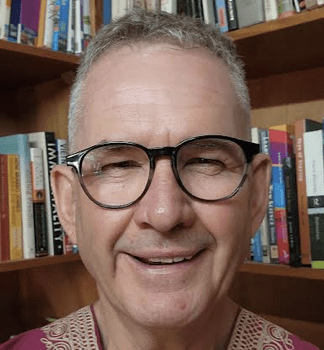
Paul Prinsloo is a Research Professor in Open and Distance eLearning (ODeL) at the University of South Africa (Unisa). He is a visiting professor at the National Open University of Nigeria (NOUN), a Research Associate for Contact North/Contact Nord (Canada), a member of the Center for Open Education Research at the Carl von Ossietzky University of Oldenburg (Germany), a Senior Fellow of the European Distance and E-Learning Network (EDEN), and serves on several editorial boards. Paul has published numerous articles in the fields of teaching and learning, student success in distributed learning contexts, the ethical collection, analysis, and use of student data in learning analytics, and digital identities.
More information soon.
– Conference Rapporteur
– Panel Discussion
– Closing of the conference
Location: HS. 15.05
Location: Resowi-Centre, Universitätsstraße 15, 8010 Graz, Bauteil C, ground floor, foyer (left entrance)
Committee
Josep M. Duart, EDEN DLE President, Spain
Kathrin Marie Otrel-Cass, Graz University, Austria
• Mark Brown, EDEN DLE Vice-President of Strategy and Communication, Ireland
• Denise Whitelock, EDEN DLE Vice-President for Research, UK
• Sandra Kučina Softić, EDEN DLE Vice-President of Open Professional Collaboration, Croatia
• Airina Volungevičienė, Lithuania
• Helga Dorner, Hungary
• Alfredo Soeiro, Portugal
• Mart Laanpere, Estonia
• Antonella Poce, Italy
• Wim E.A. Van Petegem, Belgium
• Vlad Mihăescu, Romania
• Elena Trepule, Lithuania
Registration
Attention!
Gala dinner tickets are selling out! Please do not delay your registration to the conference to secure a ticket to a splendid Gala dinner on the hill with Graz views around!
Find below the Registration Fees for EDEN 2024 Annual Conference in Graz hosted by University of Graz, Austria. Registration for EDEN 2024 Annual Conference is now open:
Once in the conference, registration center will be set in Resowi-Centre, Universitätsstraße 15, 8010 Graz, Bauteil C, ground floor, foyer (left entrance).
Key Dates:
Registration opens: 10 January 2024
Early Bird Registration Deadline: 15 April 2024
| Registration Fees* | |
| Registration Fees – Early Bird Member | € 430,00 |
| Registration Fees – Early Bird Non Member | € 490,00 |
| Registration Fees – Late Member | € 480,00 |
| Registration Fee – Late Non Member | € 550,00 |
| Registration Fees – Early Bird PhD Students | € 350,00 |
| Registration Fees – Late PhD Students | € 380,00 |
* Inclusive of Gala Dinner
Cancellation Policy
1. VISA Cancellations
In case of not getting entry VISA, as proved through documents, refund 100% of the payment will be provided to the account from which payment was done. Valid up to 30 days before the start of the conference.
2. Other Cancellations
Delegates
- Registrations cancelled for attendees 60 days prior to the start of the conference will be refunded 100%.
- Registrations cancelled for attendees 59 – 30 days prior to the start of the conference will be refunded 75%.
- Registrations cancelled for attendees 29 – 15 days prior to the start of the conference will be refunded 25%.
- Cancelations 14 days and less prior to the start of the conference will not be refunded.
Please note that in all cases banking and transfer costs incurred through payment processing platforms such as Stripe or other financial and administrative intermediaries will not be refundable and will be deducted from the refunded amount, if applicable.
Organizer
- The Organizer will always have the right to cancel/postpone the event or change the conference venue. In this case, delegates can claim a refund of 100% of the registration fee previously paid to the Organizer, but never the costs of accommodation or travel.
- Conference organisers cannot accept refund requests from the conference delegates/attendees from cancelled flights and/or natural disasters/calamities.
- The organizers will not accept any liability for personal injuries or for loss or damage to property belonging to the delegates/attendees, either during or after the conference.
The main venue of the conference is: University of Graz, Resowi-Centre, Universitätsstraße 15, 8010 Graz
Host Institution
This year’s EDEN conference will take place in Austria at the Karl-Franzens University of Graz. The University of Graz, founded in 1585, is Austria’s second oldest university and one of the largest in the country. Numerous outstanding scientists, including six Nobel Prize winners, have taught and researched here.
With 30,000 students and 4,700 employees, it makes a decisive contribution to the vibrant life of the Styrian capital. Its geographical location favours a lively scientific, economic and cultural exchange with south-eastern Europe, from which the city benefits just as much as its educational institutions.
As a comprehensive university, the University of Graz regards itself as an international institution for education and research committed to research and teaching for the benefit of society. It is our policy to maintain freedom in research and teaching, which permanently commits us to social, political and technological developments. Increasing flexibilisation and globalisation are the essential frame conditions.
The main venue of the conference is: University of Graz, Foyer Universitätsstraße 15 Erdgeschoss
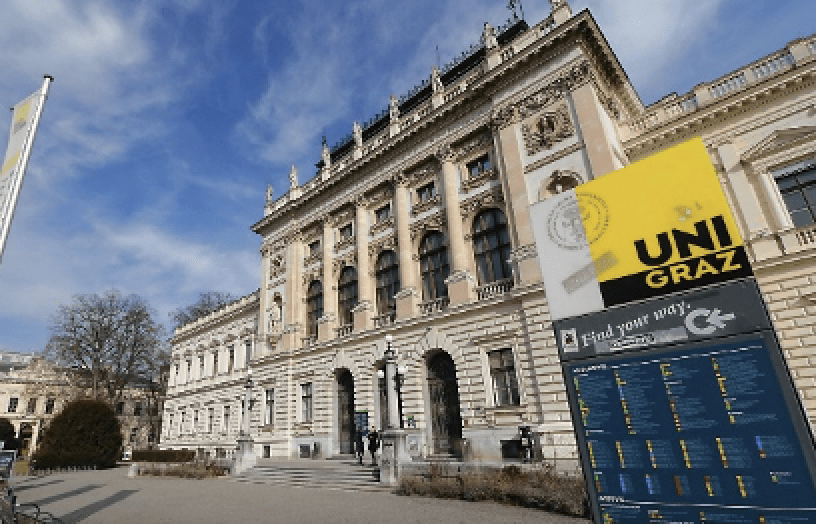
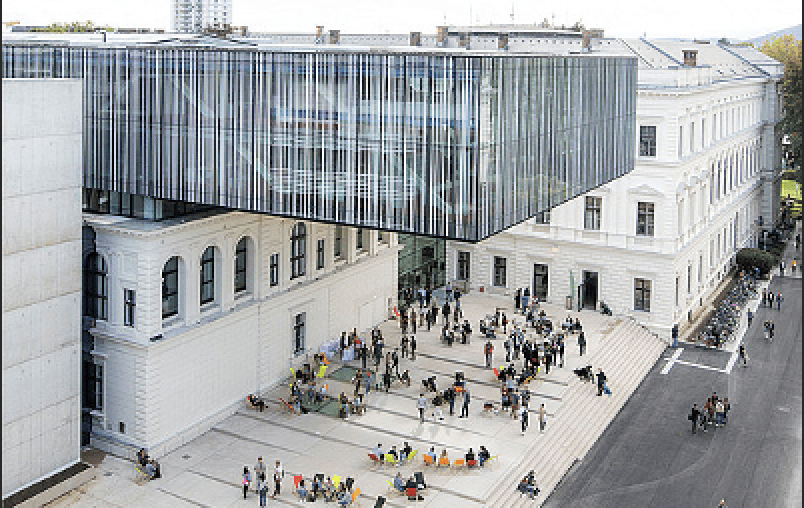
Graz, Austria
The sights of Graz – this doesn’t just mean Schlossberg, Kunsthaus or different architecture. This diversity and creative vision are the reason why Graz was named a UNESCO City of Design. Therefore, the city now officially belongs to their international network of forward-looking places. There are only ten other cities in the world to have received this award and who can now call themselves a “City of Design”, including Berlin, Montreal and Buenos Aires.
The “City of Design” title reflects the active attitude and expression of an urban culture, focusing on conscious design of the city environment as a central value. In Graz this can be seen not only in the spectacular architecture of recent years – such as the Kunsthaus, Murinsel, botanical gardens, university buildings, and much more. It above all demonstrates enormous potential in very different disciplines.
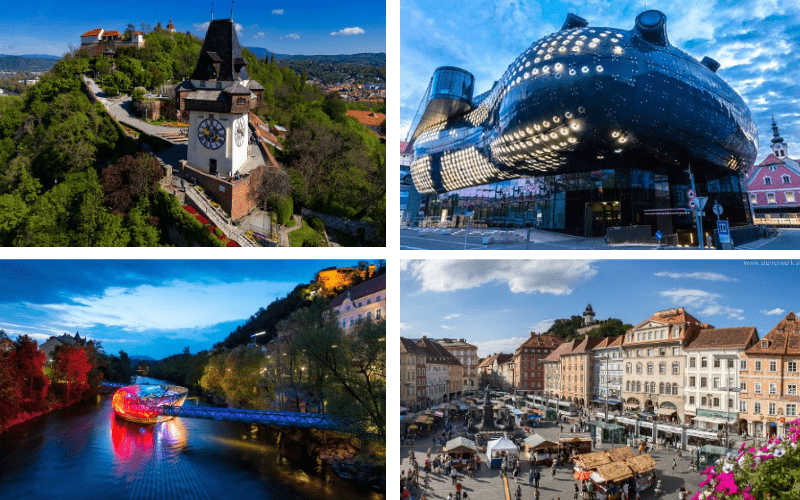
10 Best Thing To Do In Graz
Host Venue
The conference will start on Sunday 16th June 2024 in the Elisabethstraße 41 which is very close to the main University. The next two days will take place in the RESOWI Center. The central city is a 20 minutes walk or 15 minutes by bus. Student helpers and signs will direct delegates to the registration desk, welcome reception and presentation rooms.
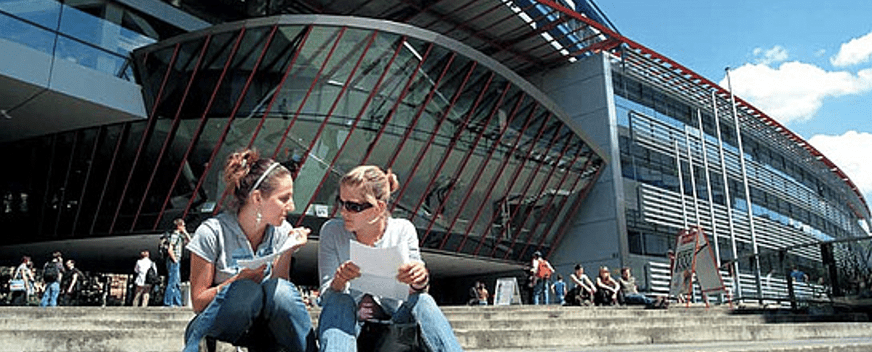
Accommodation
While Graz has many accommodation options, June is a popular month for tourists so conference participants are advised to book early. Thanks to the size of Graz, it is very easy to get to the University by walking, by bike, bus, or tram. Here you can find more information about mobility in Graz (buses & trams, bike/car rental, taxi services: Mobility in Graz | Graz Tourism (graztourismus.at)
The following hotel options are recommended due to their close proximity to the conference venue and their quality.
The following hotels have offered a reduced EDEN delegates rates:
Das Weitzer
Weitzer is located right in the Old Town, directly by the Mur, just a few steps from the eye‑catching Kunsthaus (Kunsthaus Graz: 19 Museen und 1 Zoo in Graz und der Steiermark (museum-joanneum.at)) and very near to Schlossberg (where the Gala Dinner took place). The University can be reached with 27 minutes by walk or 20 minutes by bus/tram which are right in front of the hotel.
More information you can find here: Hotel Weitzer | Graz Austria.
Parkhotel Graz
The Parkhotel Graz has been an integral part of the history of Graz for decades. It is not only the countless historical pictures or the antique furniture that make this long tradition omnipresent. The Parkhotel is very near to the University (15 minutes of walk und 11 minutes by bus) and numerous parks and gardens in Graz.
More information you can find here: Parkhotel Graz: Traditional Luxury since 1574 (parkhotel-graz.at)
Hotel Feichtinger
Hotel Feichtinger is situated in the center of Graz, in close proximity (a 5 minute walk) to the city’s famous main square. The University can be reached in 30 minutes by walk or 20 min by bus.
More information you can find here:Startseite – Hotel Feichtinger – Buchen Sie ihr Zimmer mitten im Grazer Stadtzentrum (hotel-feichtinger.at)
Travel
Graz Airport
The following Airlines regularly fly to Graz: Lufthansa, Austrian Airlines, Eurowings, KLM
From Graz Airport you can catch a taxi into the city center (apprx. 25€), a fast train (S5) to the city center for 3€ or buses also 3€.
Link: Fahrplan – ÖBB (oebb.at)
Vienna Airport
All major airlines arrive conveniently at Vienna airport. Direct trains to Graz (sometimes a change at Vienna main station) cost approximately 15-25€ + 3€ for a seat reservation (recommended).
Flixbus from Vienna airport to Graz for 20€.
Link: Bus Wien Flughafen nach Graz – Günstig tickets buchen (flixbus.at)
City transport in Graz please use the App “BusBahnBim” for timetables and connections and “GrazMobil” for buying bus tickets.
Social Programme
Attention!
Gala dinner tickets are selling out! Please do not delay your registration to the conference to secure a ticket to a splendid Gala dinner on the hill with Graz views around!
Welcome Reception: University Library at the University of Graz
Date: Sunday, 16.06.2024
Hour: 18:00 – 19:30 p.m.
EDEN Graz Annual Conference 2024 Welcome Reception will be held in the renovated and extended University Library at the University of Graz. A prominent feature is the glass cube that cantilevers out over the historically protected library and becomes the eye-catcher of the campus. The 18-metre-long overhang creates a clear separation between old and new. The renovation included the removal of additions around the historic structure, the restoration of the original 19th century façade and the construction of a spacious glass foyer. In addition, a new lecture hall with 430 seats and a transparent cube for 650 study and workstations for students were created. An artistic element by Anna Artaker, an enlarged historical illustration in sgraffito technique for perspective drawing, was integrated into the underside of the new part of the building and gives the library an additional dimension, while at the same time referring to the medium of books, which are archived and made accessible there.
Date: Monday, 17.06.2024
Hour: 08:45 – 10:30 a.m.
Gala Dinner: Schlossberg Restaurant
EDEN Graz AC Gala dinner takes place Monday, June 17, 2024 at 19:00 p.m. The SCHLOSSBERG restaurant is located on the hill 467 metres above sea level. We recommend using the Schlossberg Funicular railway to reach the SCHLOSSBERG restaurant. The funicular railway runs every 15 minutes until midnight and stops right by the restaurant.
There are four ways to get to the top of the 473-metre high Schlossberg:
– on the Schlossberg Funicular railway (recommendation)
– in the glass lift that ascends inside the mountain (entrance via Schlossbergplatz)
– on foot up the Schlossbergstiege stairs (start at the Schlossbergplatz)
– on foot via Karmeliterplatz
You can obtain funicular tickets via the free “GrazMobil” app. Besides, ticket vending machines are available on all trams, all buses and at selected locations (in the buses only cashless payment is possible, in the trams and at the stops it is also possible to pay with cash à buy your ticket for example at the Hauptbahnhof, Hauptplatz or Jakominiplatz.
– Hourly ticket: € 3,00
– 24-hour ticket: € 6,40
You can also buy your ticket at the entrance of the Schlossberg funicular railway (at the sales counter or if its closed, directly at the driver).
For visitors of the old city centre is there a special service of the “Altstadtbim”: free travel by tram through the historic part of the city. Read all about the “Altstadtbim” here.
Date: Tuesday, 18.06.2024
Hour: 17:00 – 17:30 p.m.
Action Lab – European University Alliances – What Can We Do Better For Digital Transformation?”
Monday 17th June 2024 at 11.00 -12.00 – Discussion
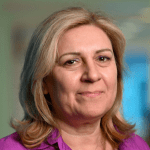
Sandra Kučina Softić
Chair
EDEN Vice President
EDEN representative in the EU Commission Working Group on Higher Education
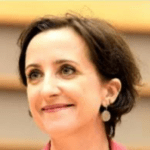
Vanessa Debiais-Sainton
Opening Presentation
Head of Unit Higher Education, EC – DG EAC
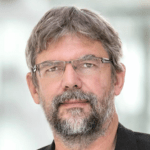
Andreas Raggautz
Opening Presentation
University of Graz
Arqus Network
Opening the floor for group discussion of participating University Alliance.
Monday 17th June 2024 at 12.15 – 13.00 – Presentations of European University Alliances
We kindly invite you to submit your proposal for presentation in this session and take this opportunity to network and share your best experiences with other European University Alliances! In case of more interest, we may add another session for presentations of European University Alliances.
Please register and submit your proposal HERE choosing the format of a Concise paper. Find more about the EDEN Graz Annual Conference 2024 and Call for papers
The European strategy for universities and the European Universities Initiative have ambitious objectives for European higher education. It includes developing innovative models of transnational cooperation. European University Alliances, however, face several challenges if they want to develop and build meaningful and working networks, that ensure the (long-term) sustainability of their partnerships. These may include challenges, i.e., on how to set up European degrees, ensure good governance, protect academic freedom and/or support research integrity, ensure interoperability, and develop solutions that are created jointly and not separately. “Piecemeal” approaches offer suboptimal solutions that still generate high transaction costs.
In this Action Lab, we invite you to join and share your insights/experiences on University Alliances roles for digital transformation of higher education. Since Universities may be at times sluggish and slow to respond to rapidly changing social, technical, and educational conditions take this Action Lab as an opportunity to reflect on examples when EUAs supported the opportunity across different University partners to develop and implement new educational approaches and why they functioned as innovation spaces and testing grounds in higher education, as well as organizational formats that offered flexible and student-centered learning.
